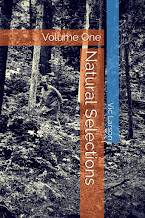As a member of a local writing support group I was made aware of an upcoming meeting to be held in an historic building across from Millennium Park in Chicago. The monthly meeting of the Society of Midland Authors was open to guests for a five dollar fee. The scheduled panel discussion followed a cocktail hour, a social time for members to mingle with guests and each other. How hard would that be? Drink, talk and listen to a panel of experts without a huge time commitment. In fact, the journey to and from the event took as long as the time between drives.
I invited a great friend who is highly adept at both drinking and talking. As it turned out he likely had better credentials than most of the “authors” in the room, his career being deep within the marketing arm of a regional magazine publishing company. My own linkage consisted of my management position in a corporate ad agency that included oversight of graphic design and writing. So we weren’t entirely crashing the meeting, though it was certainly a lark on a rainy night with nothing better to do.
We spent far more on parking near the Michigan Avenue building than we did at the cash bar on the eighteenth floor where the meeting took place. Exiting the elevator with a swagger and confidence that we felt spoke to our publishing-hood and author-ness, we grabbed a drink and began to mix with the very diverse “Midland” crowd. It turned out that the amount we drank increased in direct proportion to the fun we had with people who became more interesting over the course of an hour.
We discovered a wide spectrum of genres represented among the attendees. Being published was no guarantee of being successful, famous or interesting. Although some of the authors were novelists, most had written on esoteric topics that would only sell to a very narrow niche of friends and family. I swear, one book was a compilation of fabrics, threads and yarns (not tales) through history. The book looked like Pat the Bunny, but not as cute or neatly contained.
Members, either of their own volition or instructed to seek out guests, began to probe us for potential as members.
“What are you working on?” one tall, bearded author type asked me.
By this time, two Manhattans had me lubed enough to chat up Hemmingway at Sloppy Joe’s in Key West. I was ready to have some fun.
“Oh, I’ve been working on something for two years,” I said.
“Really! How fascinating,” he replied.
“Yeah, I’m a slow reader,” I finished.
He wasn’t sure if he should laugh, perhaps due to an underdeveloped sense of humor, or possibly in an attempt to remain professional and polite, so I followed with,
“I really prefer books on film.”
“You’re narrating a book on tape?” he gave me an out.
“No, I just find that a two hour film is much faster than I can read a book.”
The author member nodded, mouth slightly agape, and moved on to the next guest.
Soon it was time for the panel discussion. The topic was, of course, publishing because that’s what these people live for. On the panel were the Literary Critics for the Chicago Sun Times and the Chicago Tribune, and a woman who ran an independent literary review website called The Bookslut. Her name was Jessa. She had a nose for books, and actually had quite a nose, which may sound mean, but it was hard at first not to be distracted by the sight of the sundial protruding from her face until you started to listen to the words coming out of her mouth. She was by far the intellectual superior to the women working for the two major Chicago newspapers, and despite the rather crudely named website she managed, she had assembled an army of top notch literary writers to provide impressive reviews of all the latest books.
Questions put to the panel invariably centered on how to get published, recommendations for getting the attention of a publisher and marketing strategies subsequent to getting published. Self-publication was still viewed an act of desperation at the time of this meeting, an island of last resort.
The newspaper critics fielded questions to the best of their ability, but their jobs were not as publishers. They were critics and editors who had landed the two best jobs of their kind in the city. Eventually Jessa took a question, and in a moment of frustration said,
“People need to stop worrying about getting published and spend their energy writing great literature.”
A hush came over the room, and then questions turned back to publishing.
We left the meeting and headed home, having had our fill of this particular society. Once again, I had peeked in through the open window of a group I had no interest in joining, but having satisfied my curiosity was still open to the next adventure.
😎
If you like fiction and you're in the mood for over 50 short stories, please consider buying "Natural Selections," at Amazon.com.
Or if you'd prefer seventy non-fiction stories inspired by a town in Illinois, please consider buying Park Ridge Memories also on Amazon. Click on the image below.



